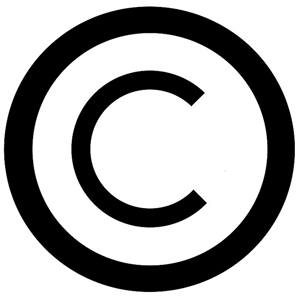 Canisius University | myCanisius | Desire2Learn
Canisius University | myCanisius | Desire2Learn
This guide is meant to assist members of the Canisius University community in making informed decisions about copyright compliance. Please remember that individuals are responsible for ensuring that they use copyrighted materials appropriately.

The U.S. Copyright Office says the term of copyright for a particular work depends on several factors, including whether it has been published, and, if so, the date of first publication.
Works created from 1978 onward are protected for the life of the creator plus 70 years, according to the 1998 Copyright Term Extension Act.
Once a copyright expires, the work becomes part of the "Public Domain" and can be used freely. Works released 96 or more years ago are in the public domain. For example, as of January 1, 2020, all works released before January 1, 1925 no longer have copyright protection. The protected status of works published before 1978 and less than 96 years ago varies based on how they were published, registered, and renewed.
Sound recordings have a different set of rules and need to be used with extreme care. Please refer to the Music Modernization Act of 2018 for more information.
Copyright is a form of protection provided to the creators of "original works of authorship" including: literary, scholarly, dramatic, musical, artistic, and certain other published and unpublished works, once they are "fixed in a tangible form of expression". This guide focuses on the laws of the United States (under Title 17 of the U.S. Code) but you need to comply with other national and international laws where applicable.
Everyone! Stuff you write, make, or create is automatically covered by copyright. You have the right to decide who uses your stuff as well as how it gets used. Section 106 of US copyright law gives the owner of copyright the exclusive right to do, and to authorize others to do, the following activities: make copies, prepare derivative works, distribute copies, perform/display the work publicly.
Yes. The rights of a copyright holder are subject to certain limitations & exemptions. As a result, there may be situations that allow members of an accredited, non-profit, educational institution (like Canisius University) to use materials without having to seek permission. This is called Fair Use and it MAY let you use material from others for educational purposes.
Librarians are here to help you.That's what we do!
1 - Call Us
Reference Desk 716-888-8411
List of Librarians
2 - Text Us
716-431-3609
3 - Book A Librarian
Schedule an individual reference session with a librarian. Get all of your research questions answered and keep your paper
and reference list on the right track.
Hours and Calendar
Check here for our current hours and holiday hours.
Resource Sharing:
If you need an article that Canisius does not own or one we only have in print, place a request through our Resource Sharing Service. We can borrow materials for you from libraries across the country or scan articles we own here.